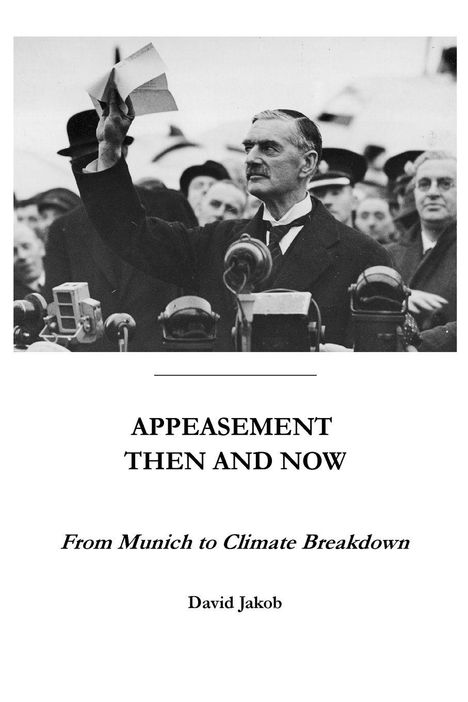David Jakob: Appeasement then and now, Kartoniert / Broschiert
Appeasement then and now
- From Munich to Climate Collapse
(soweit verfügbar beim Lieferanten)
- Verlag:
- David Jakob Verlag, 10/2025
- Einband:
- Kartoniert / Broschiert
- Sprache:
- Englisch
- ISBN-13:
- 9783952639450
- Artikelnummer:
- 12511761
- Umfang:
- 126 Seiten
- Gewicht:
- 195 g
- Maße:
- 229 x 152 mm
- Stärke:
- 7 mm
- Erscheinungstermin:
- 8.10.2025
- Hinweis
-
Achtung: Artikel ist nicht in deutscher Sprache!
Klappentext
Appeasement Then and Now: From Munich to Climate Collapse! is a clear-eyed exploration of how the lessons of history repeat themselves when fear, convenience, and denial override responsibility. In this timely work, David Jakob revisits the appeasement policies of the 1930s - most famously Neville Chamberlain's "peace in our time" deal at Munich - and shows how political leaders, trapped by wishful thinking and public pressure, chose to ignore the obvious dangers of authoritarian aggression. That blindness did not prevent war; it only delayed the reckoning and made the eventual cost far higher. Jakob argues that the same pattern of appeasement plays out today. Faced with the reality of the climate crisis, and with the rise of new forms of authoritarian politics, governments often prefer short-term comfort over hard choices. The mechanisms of denial are strikingly similar: reassure the public, maintain business as usual, dismiss urgent warnings as exaggeration. Yet, as history demonstrates, appeasement does not resolve threats - it feeds them. Written in accessible language and grounded in both historical analysis and contemporary observation, this book is both a warning and a call to clarity. It challenges readers to see how collective blindness develops, how excuses become policy, and how "following orders" or "waiting for someone else to act" perpetuates danger. Appeasement Then and Now is for readers of history, politics, and current affairs who want to understand not just what happened in the past, but how it continues to shape our present - and how personal responsibility is the only way forward before today's crises become tomorrow's catastrophes.



